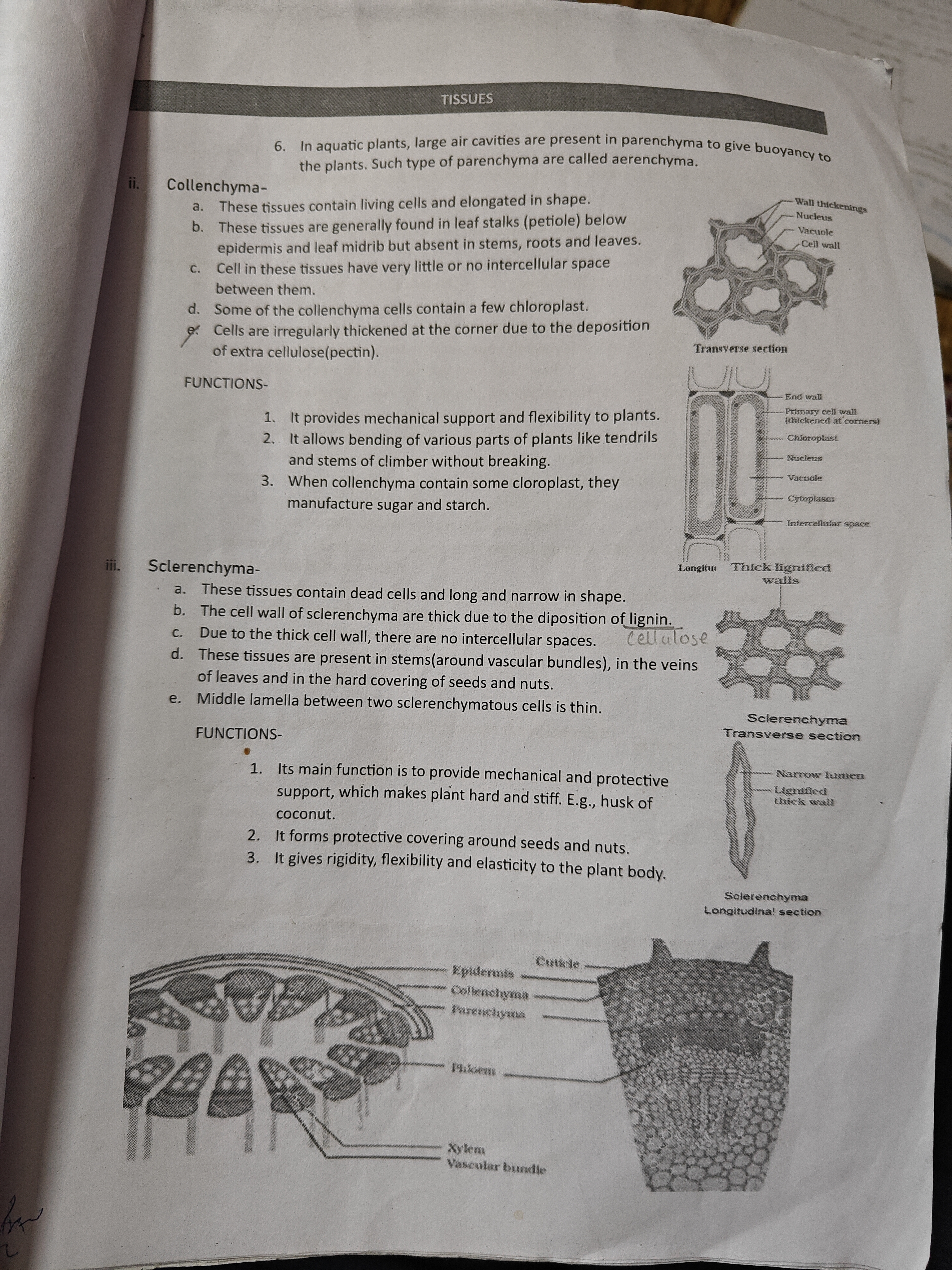What are the characteristics and functions of collenchyma and sclerenchyma tissues in plants?

Understand the Problem
The question appears to request information related to plant tissues, specifically collenchyma and sclerenchyma, including their characteristics and functions.
Answer
Collenchyma has living, flexible cells with thickened walls. Sclerenchyma has dead, rigid cells with lignified walls.
Collenchyma has living cells with irregularly thickened walls, primarily providing support and flexibility. Sclerenchyma has dead cells with thick lignified walls, providing mechanical and protective support.
Answer for screen readers
Collenchyma has living cells with irregularly thickened walls, primarily providing support and flexibility. Sclerenchyma has dead cells with thick lignified walls, providing mechanical and protective support.
More Information
Collenchyma is primarily found in the stem cortex, leaf veins, and petioles, helping in the growth and providing mechanical support. Sclerenchyma, on the other hand, strengthens and protects mature plant parts, like seeds and nuts.
Tips
Common mistakes include confusing the functions of collenchyma and sclerenchyma or not recognizing the presence of lignin in sclerenchyma, which makes these cells rigid and strong.
Sources
- Collenchyma | Description, Function, & Examples - Britannica - britannica.com
- Sclerenchyma - an overview | ScienceDirect Topics - sciencedirect.com